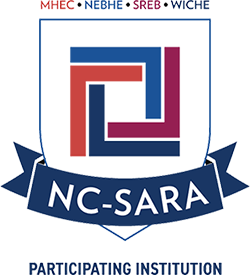Statement on Accreditation
Since 1978, The American College of Financial Services has been accredited by MSCHE, an institutional accrediting agency recognized by the U.S. Secretary of Education and the Council for Higher Education Accreditation (CHEA). It’s a voluntary, non-governmental, membership-based association that defines, maintains, and promotes educational excellence across institutions with diverse missions, student populations, and resources.
MSCHE examines each institution as a whole, rather than specific programs within institutions, assuring students and the public of the quality of higher education. Its accreditation process ensures institutional accountability, self-appraisal, improvement, and innovation through peer review and the rigorous application of standards within the context of institutional missions.
Current Status
The American College of Financial Services is accredited by the Middle States Commission on Higher Education. The Commission’s most recent action on the institution’s accreditation status on 6/22/23 was to reaffirm accreditation. The College's next evaluation visit is scheduled for 2029-2030.
For More Information
Middle State Commission on Higher Education
1007 North Orange Street
4th Floor, MB #166
Wilmington, DE 19801
(267) 284-5011
www.msche.org

The American College of Financial Services has been approved to participate in State Authorization Reciprocity Agreements.
The National Council for State Authorization Reciprocity Agreements (NC-SARA) is a private nonprofit organization [501(c)(3)] that helps expand students’ access to educational opportunities and ensure more efficient, consistent, and effective regulation of distance education programs.
Recognizing the growing demand for distance education opportunities, higher education stakeholders – including state regulators and education leaders, accreditors, the U.S. Department of Education, and institutions – joined together in 2013 to establish the State Authorization Reciprocity Agreements (SARA), which streamline regulations around distance education programs.
In partnership with four regional compacts, NC-SARA helps states, institutions, policymakers, and students understand the purpose and benefits of participating in SARA. Today, more than 2,200 institutions in 49 member states, the District of Columbia, Puerto Rico, and the U.S. Virgin Islands all voluntarily participate in SARA.
Why NC-SARA Matters:
- Improves distance education program quality nationwide.
- Makes it easier for students to access distance education programs across state lines.
- Reduces costs and bureaucracy for states and institutions.
- Improves coordination between states on higher education opportunities.
- Provides valuable oversight of distance education programs.
- Shares out-of-state learning experience data like clinical hours and practice teaching.